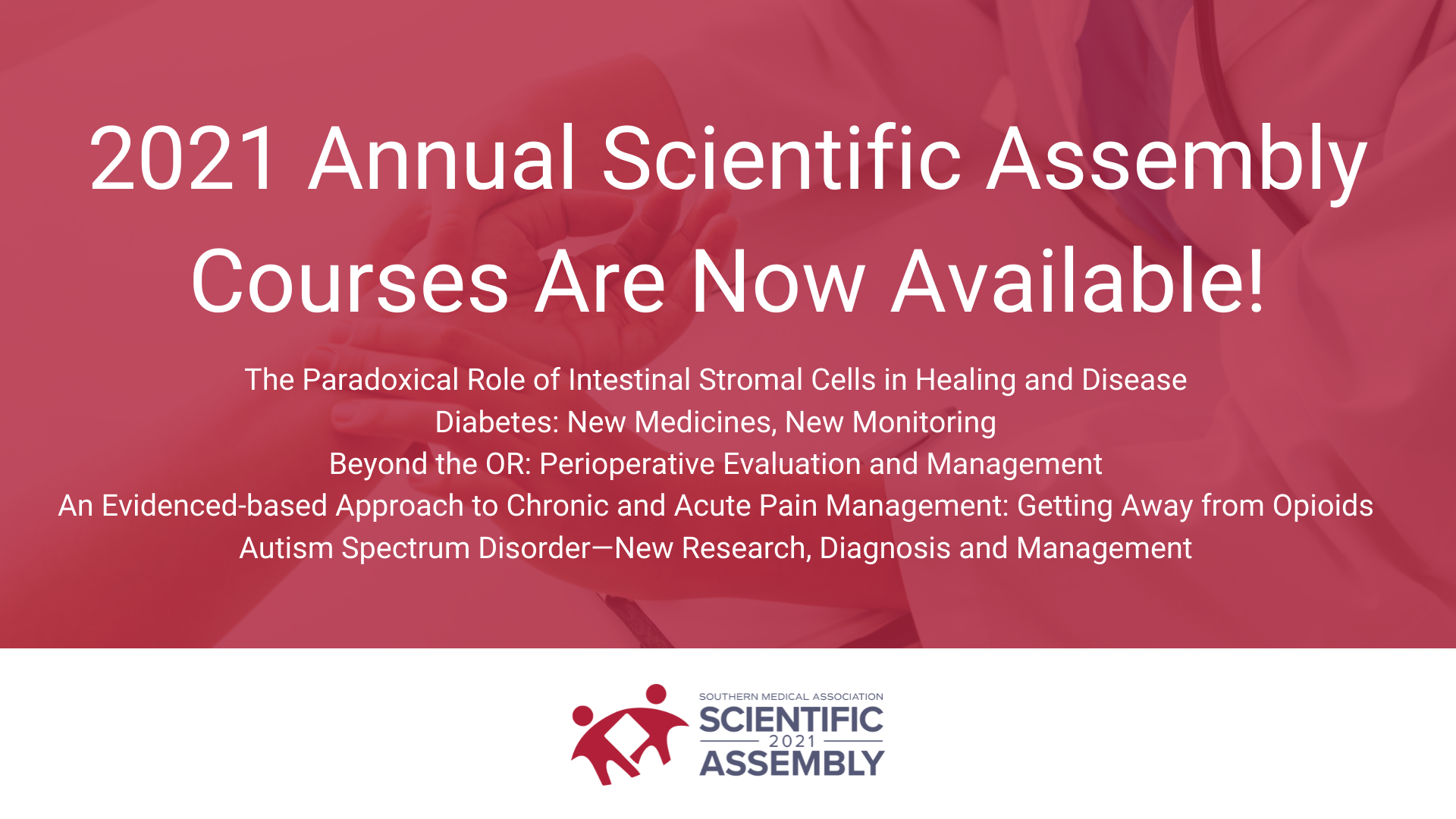
Courses from the 2021 Annual Scientific Assembly are now available!
The 2021 Annual Scientific Assembly was held in Orlando, FL from October 28-30. In case you happened to miss it, all of the invited guest speakers' lectures are now available for CME credit in our Online CME Library!
The Paradoxical Role of Intestinal Stromal Cells in Healing and Disease
For the past 25 years, Dr. Powell’s research has focused on the biology of intestinal myofibroblasts, also called activated fibroblasts, intestinal mesenchymal cells, or intestinal stromal cells. This activity details information about this research.
Diabetes: New Medicines, New Monitoring
The field of diabetes mellitus is rapidly expanding. In the past decade several new medications and new glucose monitoring and insulin delivery systems have been developed and approved for use in clinical practice. This activity is designed to review the most relevant and current aspects of the management of diabetes mellitus.
Beyond the OR: Perioperative Evaluation and Management
This activity will highlight practice changing updates for the outpatient and inpatient general internists to manage patients prior to and after surgery. The information presented will address best practices for obtaining a perioperative history and physical, guidance on medication management, and conducting appropriate follow-up care.
An Evidenced-based Approach to Chronic and Acute Pain Management: Getting Away from Opioids
This presentation seeks to delve into the current evidence surrounding the management of acute and chronic pains, as the lecturer takes an integrative approach, meaning, “if there is evidence supporting its use to help my patients, I want to know about it,” so as to impart this information which in turn may help them remain or become the most effective pain alleviators.
Autism Spectrum Disorder—New Research, Diagnosis and Management
This activity is of benefit to healthcare providers (HCPs) who primarily treat patients with ASD, as well as providers who are not providing direct treatment to patients with ASD. An update is provided about the newest research on the etiology and neuroanatomy, the diagnostic work-up, and the importance of early intervention, as well as strategies on how to optimally communicate and provide medical treatment to patients with Autism to ensure compliance.
